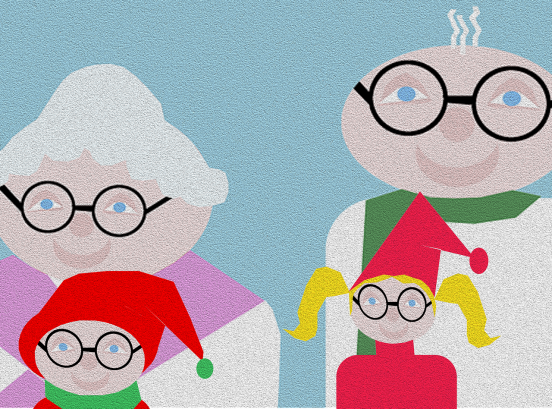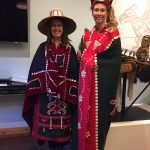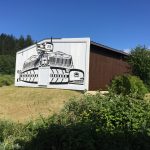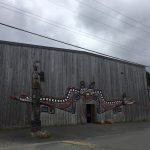What is your theme and how did it arise for you?
My overarching theme for my inquiry project is intergenerational learning. This theme is significant to me on both a personal and professional level. I am extremely lucky to have three living grandparents who have made enormous impacts on my life. Throughout my childhood and adult years I have always been very close to them, and have spent countless hours learning from them. They have taught me social skills (such as politeness and thinking of others), as well as more tangible skills (such as sewing, baking and driving). Though these lessons have not been formalized, they are incredibly important. I know that not everyone is able to have a connection with someone from an older generations and I see this as a lost opportunity for learning.
On a professional level, intergeneration learning makes me wonder about education’s place in society. Educational institutions are an integral part of society, however they are structure to exclude certain groups, like seniors. As Canadian demographics shift, and our population ages how will we create inclusive spaces that don’t institutionalize ageism? Instead we must take advantage of what each generation is able to offer and celebrate how we can learn from each other. As teacher we are constantly being told that learning is a lifelong journey, why can we model this in our classrooms by including older generations?
Some of my key questions:
- What are the benefits of multi-generational learning for children?
- What are the benefits of multi-generation learning for seniors?
- Is the an overlap of interests that makes this type of learning beneficial for both the young and old?
- How can we (as teachers) plan & make this happen?
- As the population ages, how can we facilitate the transfer of knowledge between generations in a school setting?
- What are meaningful ways for these generations to interact?
- Does multi-generational learning help stall diseases like Alzheimers?
What resources will you draw on to explore your question?
- Case studies / newspaper articles
- Mount St. Vincent, Seattle, USA (http://washington.providence.org/senior-care/mount-st-vincent/services/child-care/)
- The Intergenerational School, Cleveland, USA (http://tisonline.org/)
- Eileen Madson Primary School, Invermere, BC (http://www.theglobeandmail.com/news/national/kindergarten-in-a-retirement-home-proves-a-hit-with-young-and-old/article4103165/)
- IGen, Saskatoon, Saskatchewan (http://www.spsd.sk.ca/program/igen/Pages/default.aspx)
- Generation to Generation (http://www.generationtogeneration.org/)
- Academic sources
- Damian Spiteri – ‘What do older people learn from young people? Intergenerational learning in ‘day centre’ community settings in Malta’
- Peter Whitehouse – ‘The challenges of cognitive aging: Integrating approaches from neuroscience to intergenerational relationships’
- Milada Rabušicová, Lenka Kamanová, Kateřina Pevná – ‘Family Learning Models in intergenerational Perspective’
- Cynthia D. Fair & Emily Delaplane – ‘’It is Good to Spend Time with Older Adults. You Can Teach Them, They Can Teach You’’: Second Grade Students Reflect on Intergenerational Service Learning
- TED Talks / movies
- Documentarian, ‘Present Perfect’, Evan Briggs (https://www.youtube.com/watch?v=5Walt8nPINM & http://washington.providence.org/senior-care/mount-st-vincent/services/child-care/about-child-care/)
- Alive inside
What do you expect to find out?
I expect to find that there are many benefits of intergenerational learning, both for the child and the senior. Moreover, I expect that these benefits will affect the individual on a deeper, socio-emotional level. The education both groups will receive from each other will go beyond ‘traditional’ education (i.e. learning the alphabet from a ‘grand-friend’) and into an understanding and empathy that will last a lifetime.
I hope through my research I can think of some ways to make the exchange of knowledge between generations feasible for classroom teachers in a variety of educational settings. Though a wonderful way of facilitating this learning is through the geographical closeness of the groups (i.e. having a school in an old age home), this may not always be an option. Because I believe that the benefits of intergenerational education are so large, I hope to find ways to do this in my own classroom.





